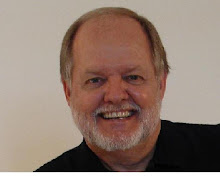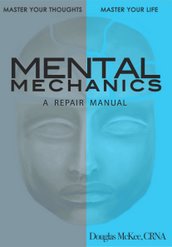Far from being the enemy it is usually considered, our ego is a marvelous entity and may well be our best friend. It takes care of many tasks automatically that we could not possibly take care of if we had to think about them such as digestion, respiration, walking and balance and the storing of all our experiences in minute detail.
There will certainly be a few who will state that some of the above functions are handled by lower portions of the brain that don’t have anything to do with higher level thinking. They are not only incorrect, but also miss the point that all the functions happening on all levels in our brains combine to make us who we are while residing in this biological suit, a human being.
What is the interface between our Consciousness and the physical world where all this experiencing is taking place? What is the mechanism that has allowed us to progress from a single celled algae to the point of thinking we don’t need a brain any longer?
Imagine going for a walk on the beach at sundown. Before you start walking however, you put on blinders, boots, boxing gloves, ear plugs, clothes pin on your nose, and tape your mouth shut. What will your experience be then? The ego is what applies meanings to our purely physical sensory experiences. Hopefully you are starting to get the point.
Are there differences between “feelings” and “emotions?” Yes, and the differences are significant. If your significant other walked up behind you and gently patted your backside, you would feel exactly the same sensations as you would if you were at a bus stop and a stranger walked up and patted you on the backside. However, the emotions would be totally different. The ego is what applies meaning to our feelings.
Our emotions are what allow us to experience all our physically manifested emotional states. Emotions are what make us stop breathing just because something is so beautiful that we are overcome by the sight. Emotions sometimes make us weep for joy? And emotions are what power our dreams and desires, fuel our intentions and makes us tingle all over when we have done something really well.
They are also what can drive us to kill in a fit of rage or take our own life in an imaginary abyss of unbelievable hopelessness and despair.
Our problem with the ego is that we want something to blame for the negative emotions that can keep us mired in lower energy states of being and the Ego is the only thing to which we can point.
What is the ego? It appears to be a database of experiences and meanings that is unique to each of us because our experiences and meanings are unique. It contains everything each one of us has experienced since being conceived and also the meanings attached to those events. It allows us to go about our daily routines such as work, driving, family, and play fairly automatically because it stores all the data necessary to handle those situations.
The ego is the result of billions of years of evolution and is a marvelous mechanism for living a matter-based life. Our DNA shows we have been everything you can imagine. We have been aggressively savage and we have sought life in the dark to hide in our timidity. We have been both predator and prey. Our ego is a product of all of this and more. The “lower” parts of our brain still function as they did hundreds of millions of years ago. Most of our non-verbal behavior is mediated by parts of our brain that actually developed many eons before we had words or even self-awareness.
Parts of our memories from those times are genetically encoded and do not depend on, or need, thinking to be activated. The lessons we learned during each of those experiences are still there also. When do we choose to be predator and when do we choose to be prey? Is it any wonder we sometimes behave and feel like we are schizophrenics?
If we act like that sometimes it’s because we are……. we truly are. A lot of new work points to the fact that we all have a multiplicity of personalities. The only difference between us “normals” and the “abnormal” folks with MPD (Multiple Personality Disorder) is that our personalities talk with each other and come to a consensus and people with MPD, the personalities don’t talk to each other at all.
In the people with MPD, one personality is in control and the others are suppressed. In a crisis, however, sometimes their personalities shift rapidly from identity to identity. In emergency rooms when this has happened, serial blood samples drawn from each identity as it arises, and then is suppressed, reveal something absolutely amazing. The blood samples show that each different personality has a physiologically different body.
This might not sound like a big deal, but in one patient with an obviously mental condition, you would not expect to find many different physical conditions such as high blood pressure, allergies, asthma, and even diabetes, each condition confined to a different personality and not shared by the other personalities, actually resulting in different bodies shared by the same patient as they shift personalities. Think about that for a bit. The ramifications of these findings are astounding.
Many husbands and wives will not be amazed by this because their spouses obviously have different beings inhabiting their bodies and quite regularly change from loving spouse to raging lunatic. I would imagine teens will also pick up on this quickly and, when told to quit doing something, they’ll simply reply, “I wasn’t doing it.”
It also raises some unique questions about our life as an individual. Who is it who gets sick and who heals that person? Who dies? Incredible questions which can only be answered in the context of higher order beings of energy with life streams reaching much farther back than our birth.
Before we had an ego, all we had was genetically inherited directives. All animals from chimps on down the scale to algae have no concept of self. They “see” themselves only as a part of a group. Marching back to the beginning, we find less and less evidence of awareness, but we are the ones deciding what awareness actually is. At that time, consciousness was a blank slate of potential waiting for experiences.
As Consciousness has grown in experience, our awareness has grown with it, until eventually we became self-aware; aware of our self as an individual. The great apes are the first animal we know of to exhibit self-awareness, but they have a very limited capacity to use it. It’s not for certain we humans have figured out what to do with it either. I have a dog that is at least as intelligent and certainly more loyal and trustworthy than most politicians.
Having made it to this lofty plateau of “intelligence” we now regard the ego as an impediment, but is it really? The ego deals with life in the slow lane, life in physicality, and it does it very well. The ego simply is not geared to living as a spirit, it’s too concrete. Whatever it stores becomes available to us as a metaphor and can only exist in a pre-determined context. All ego problems stem from this. When asked, the ego serves up a metaphoric stew containing all the possibly related experiences. Depending on the emotional force ingredient in the stew, and our habit, we either control the choice of resulting possibilities or we don’t.
The ego has a very limited concept of possibilities and they are already categorized and ranked by the amount of emotional energy stored with them. A new study quoted in the BBC showed via PET scan that, in gamblers facing gain or loss, the amygdala was really involved in the decision making process. The amygdala is a part of our brain that has a lot to do with our emotional biochemical response such as the fight or flight response. It also has no capacity to reason at all, in any situation.
At least ninety nine percent of our emotional response is actually directed by parts of the brain that are incapable of reason; they simply dictate a reaction to non-verbal stimuli. What the study demonstrates for us is that the ego is not exclusively cerebral. The ego is obviously influenced by parts of the brain that are totally incapable of reason.
Is the ego also the entity that lets us know there is something else, something larger and unlimited? As a small child I knew adults didn’t have all the answers but, at the same time, knew in my heart there were indeed answers. The ego understands it is limited. It also knows we ask it questions for which it has no answers. However, it does its best to provide them based upon what is already stored.
We all have experienced a child asking “why”, to the point that it has become part of our humor lexicon. They simply want to understand. Those “whys” are always there; they never quite go away completely. Many adults eventually simply give up asking and accept what is stored in their ego as the ultimate definition of their world. Every fundamentalist or terrorist has chosen a world of stark absolutes, discarding any and all evidence to the contrary.
The old adage, “An ignorant man believes what he thinks, but a wise man believes what he sees,” is good advice. But it’s not quite correct, is it? If the man were truly wise he would know what he “sees” is also the product of what he believes.
skip to main |
skip to sidebar
"Wisdom is the freedom and ability to make the kinds of choices that move our lives forward and benefit the planet."





